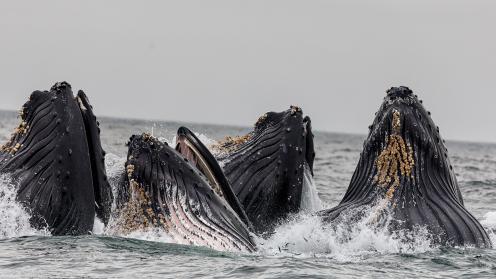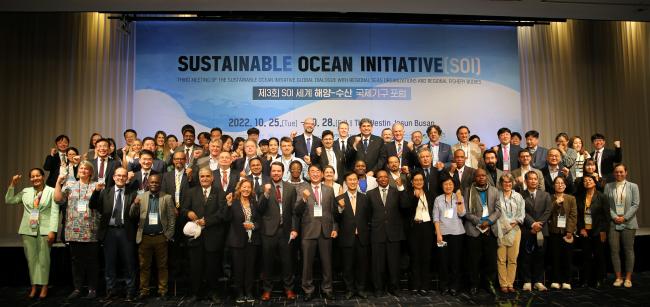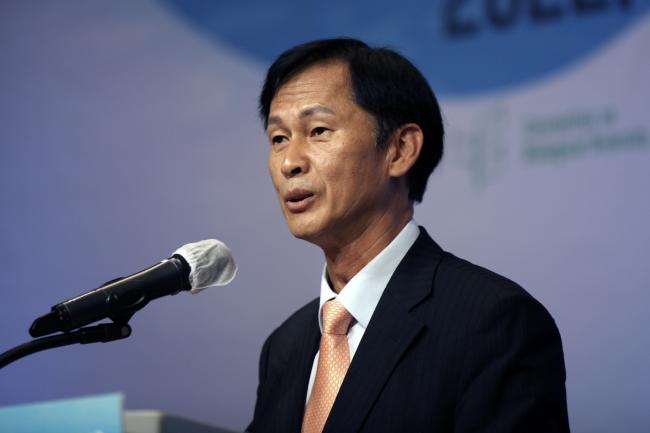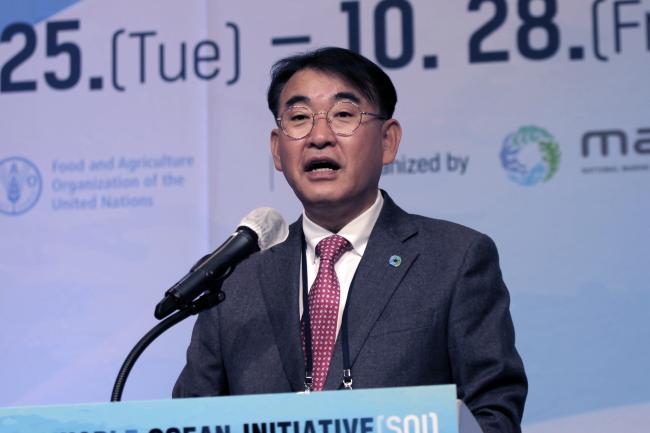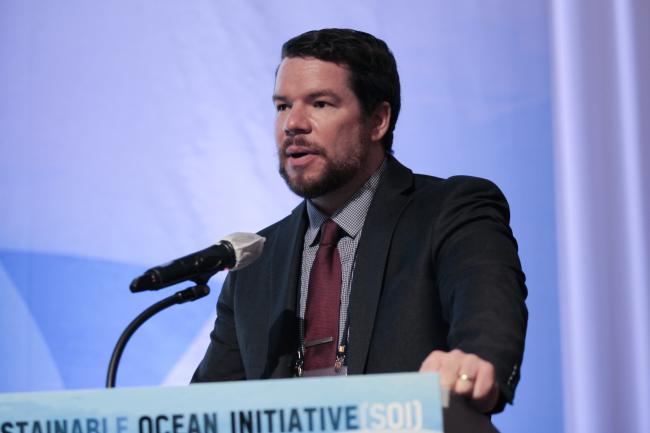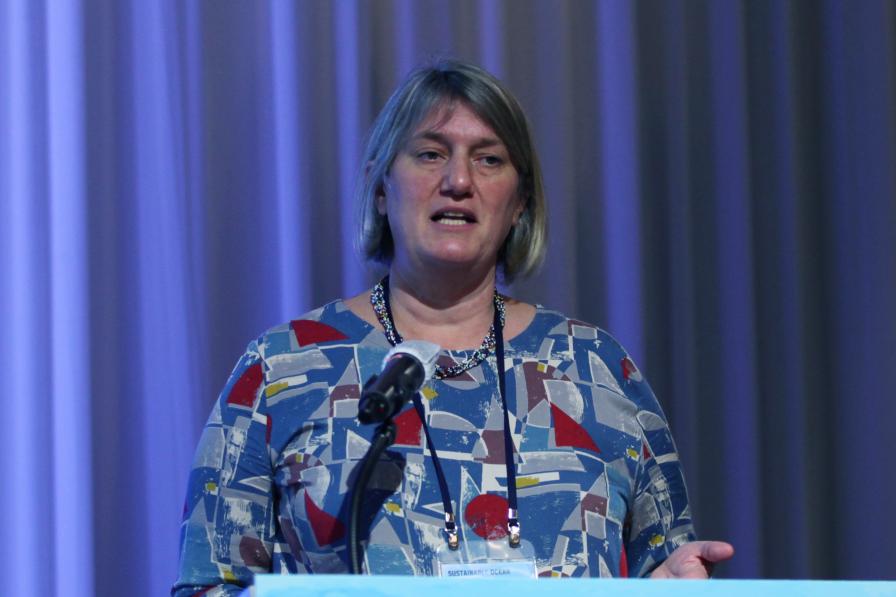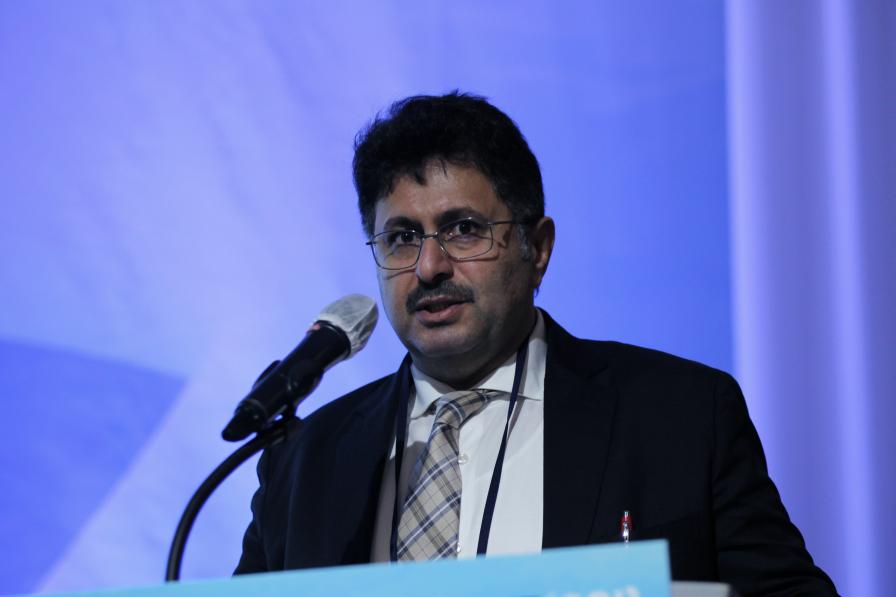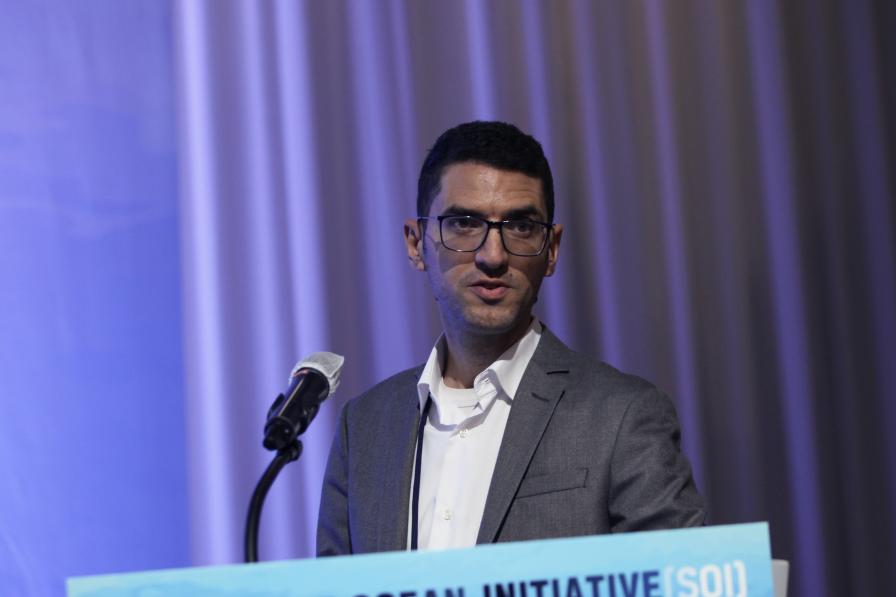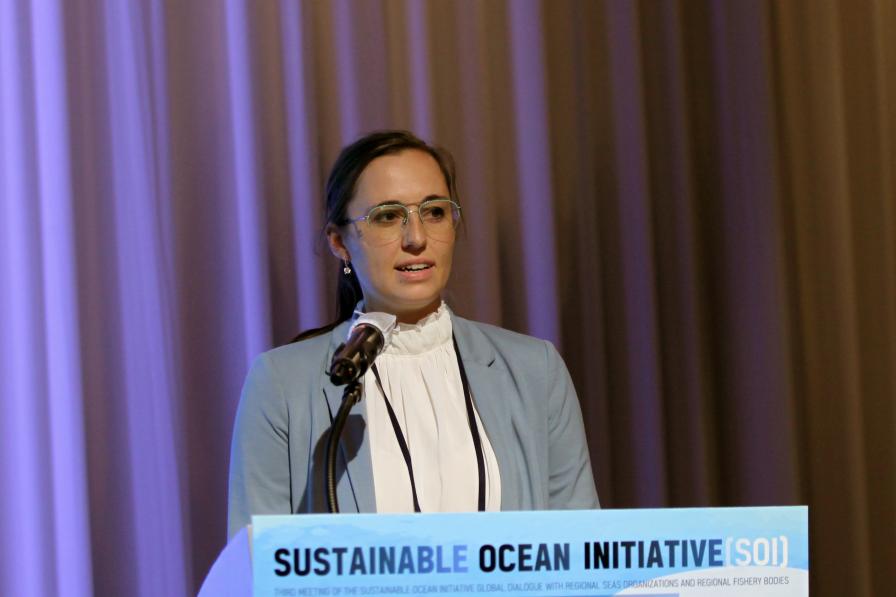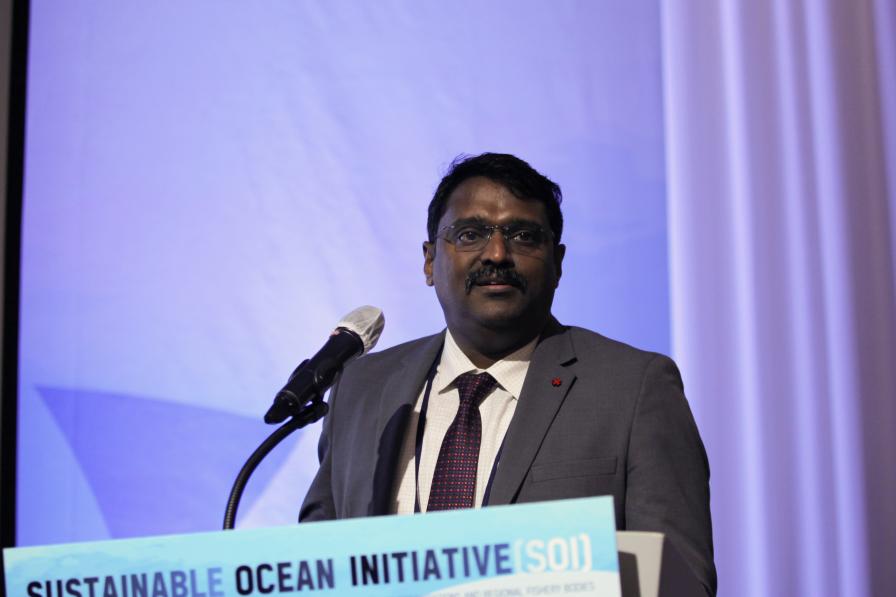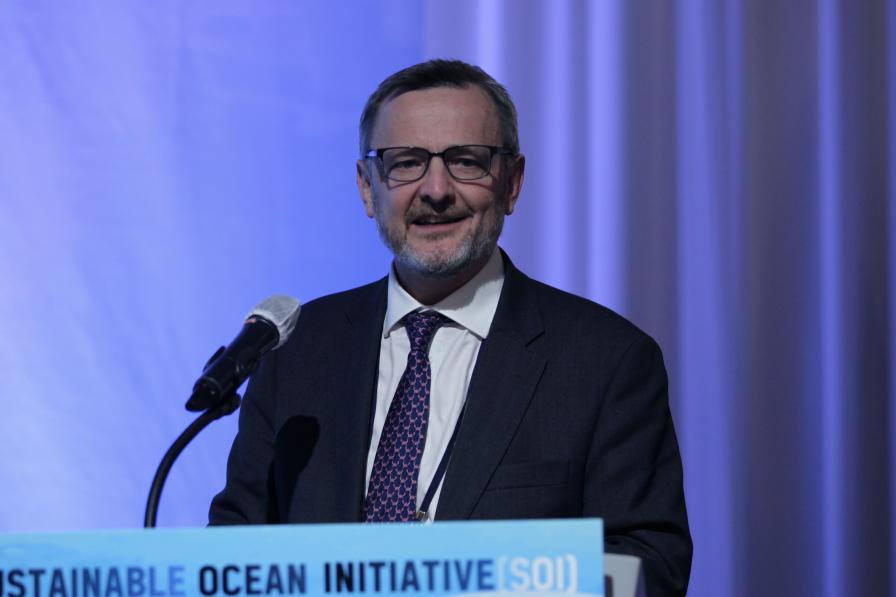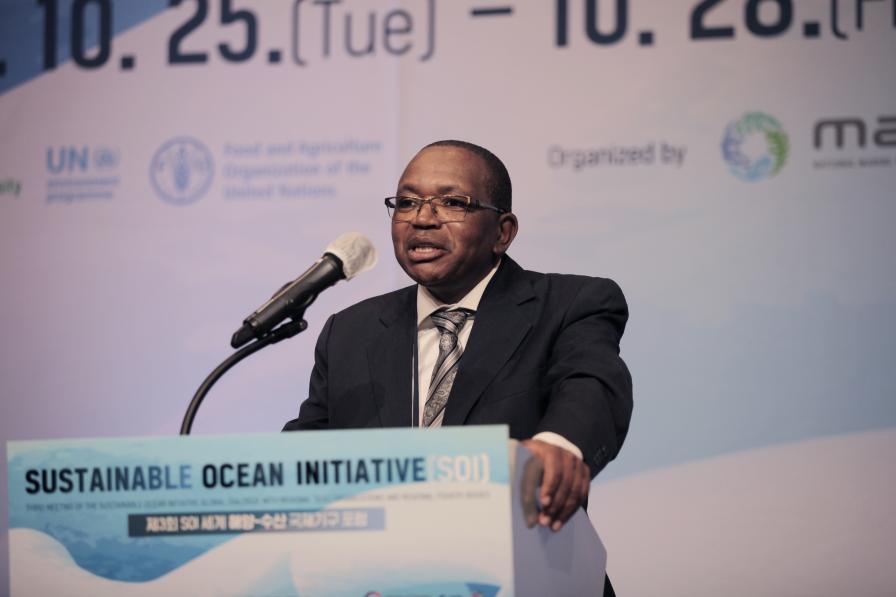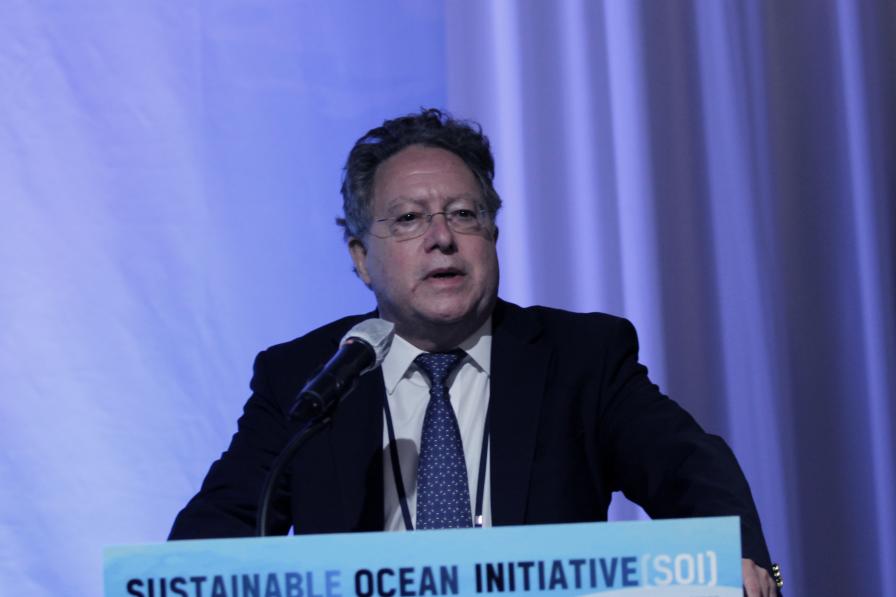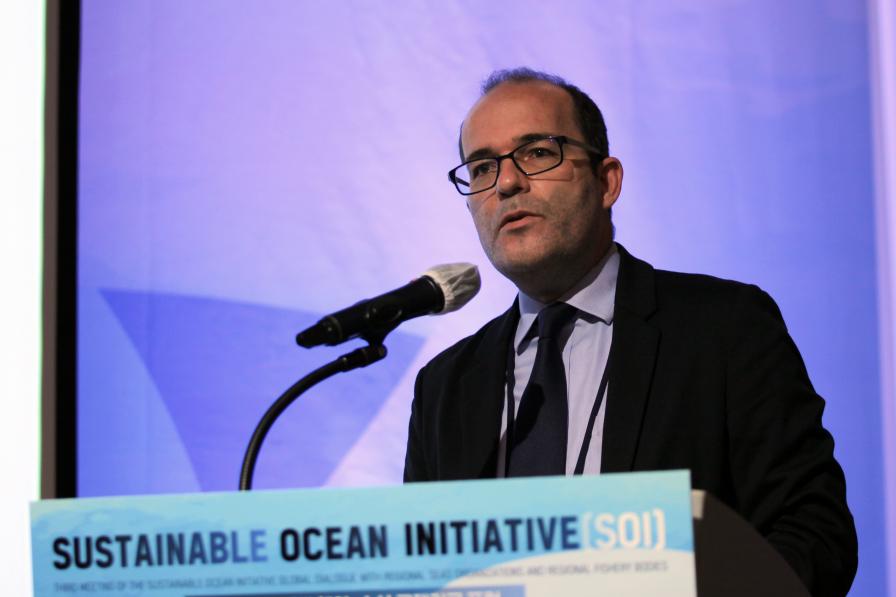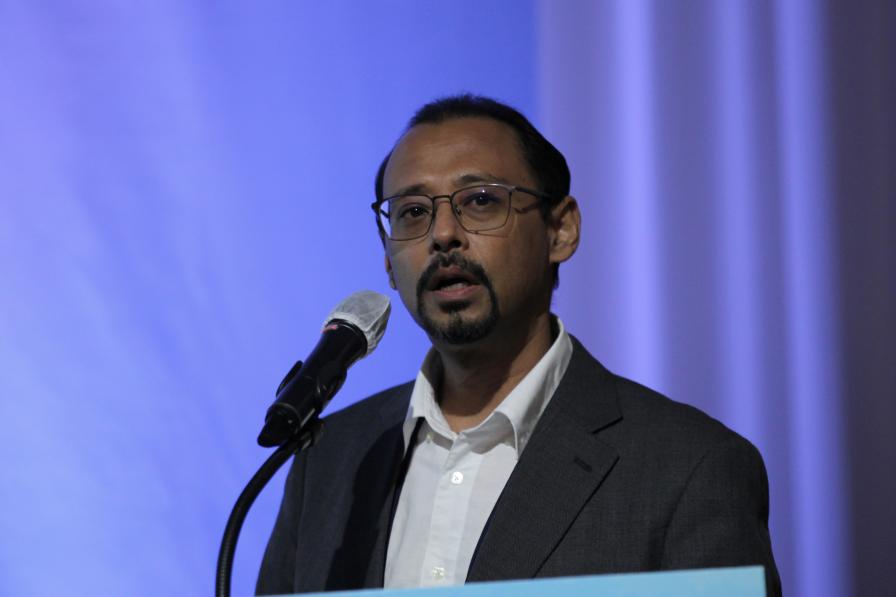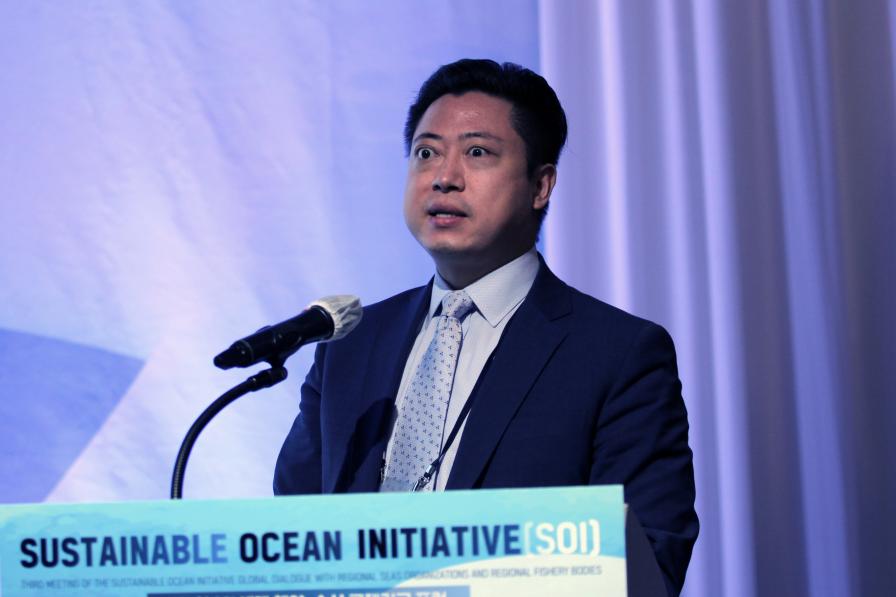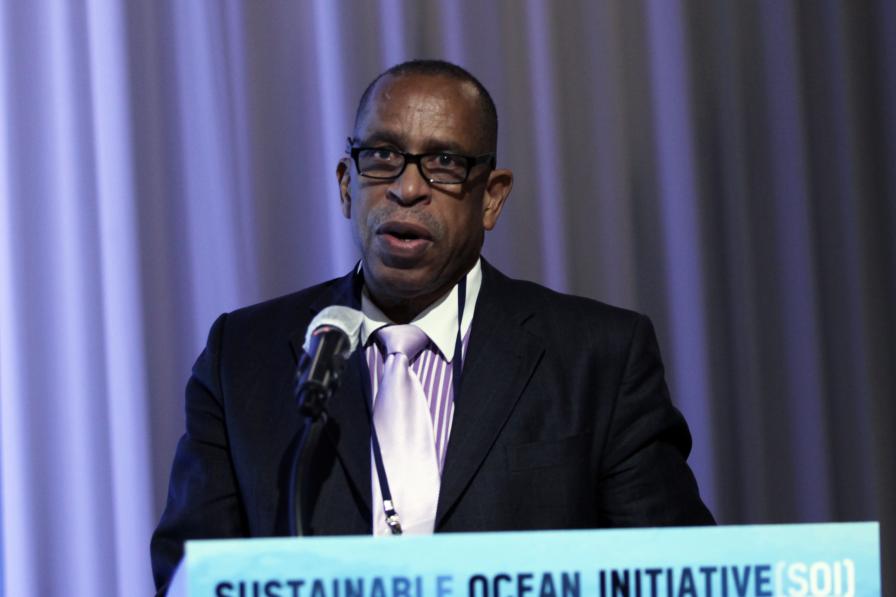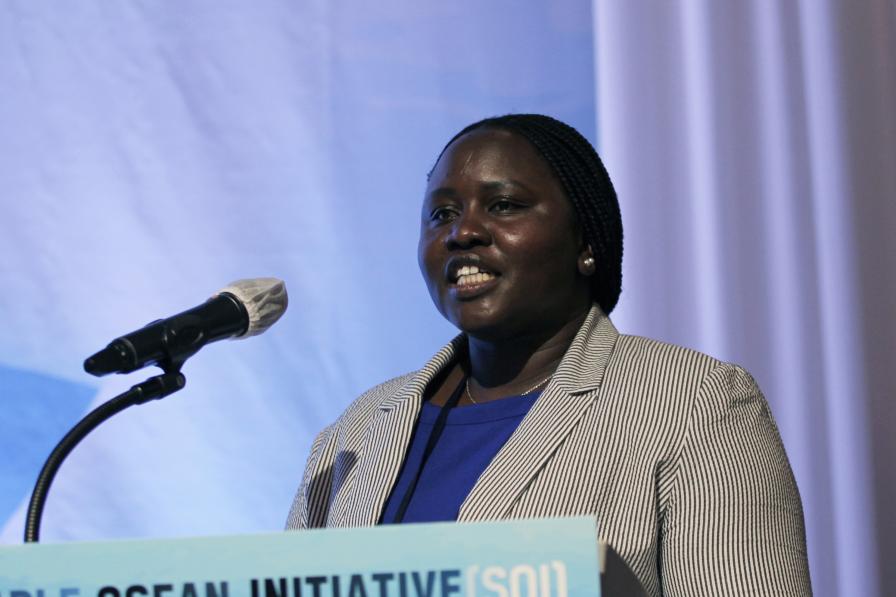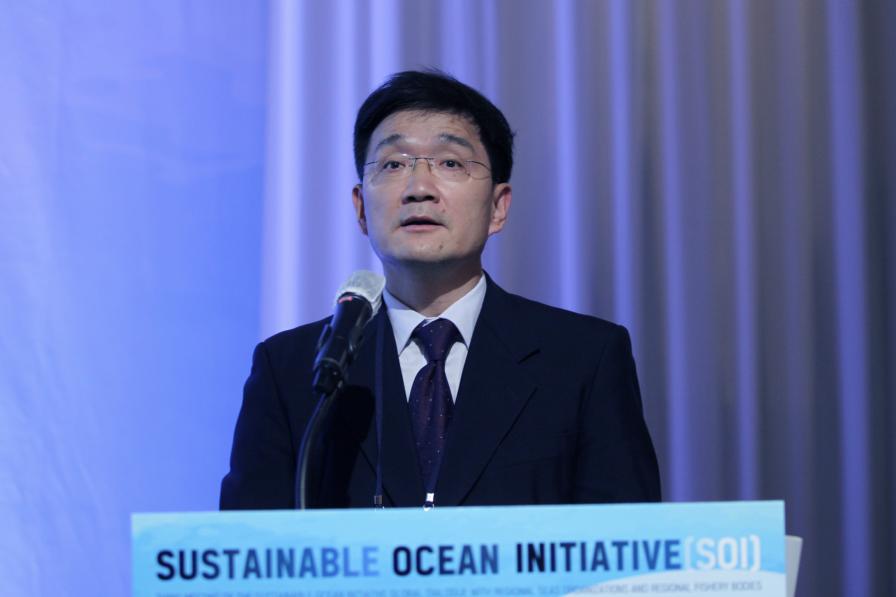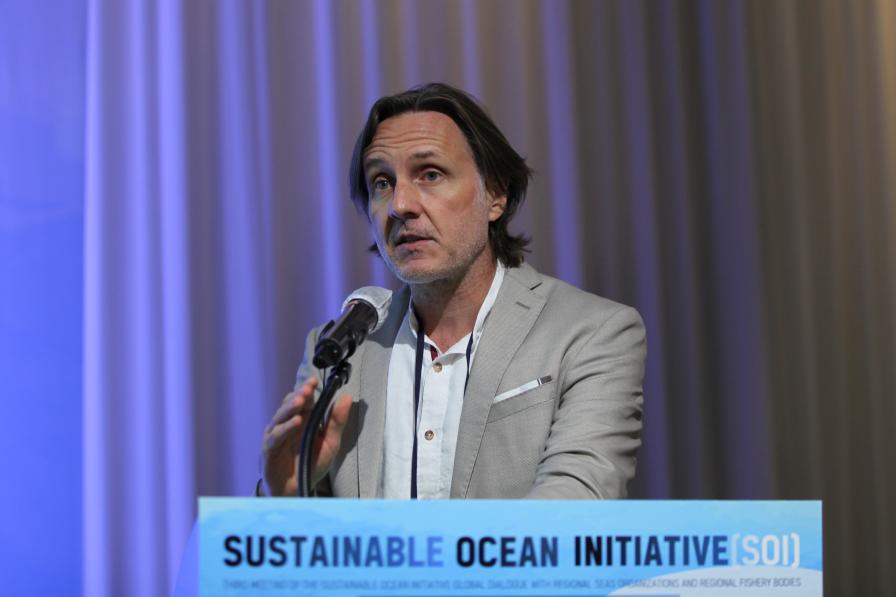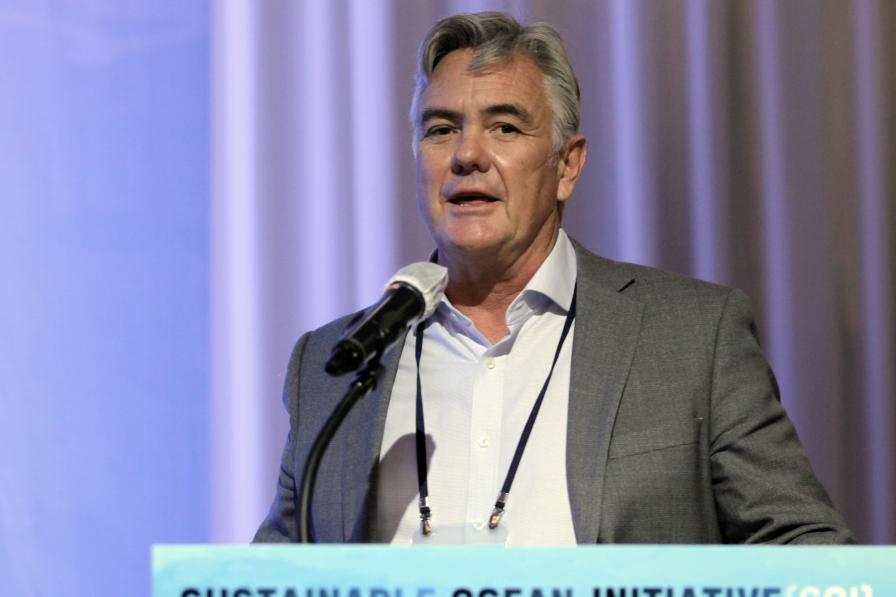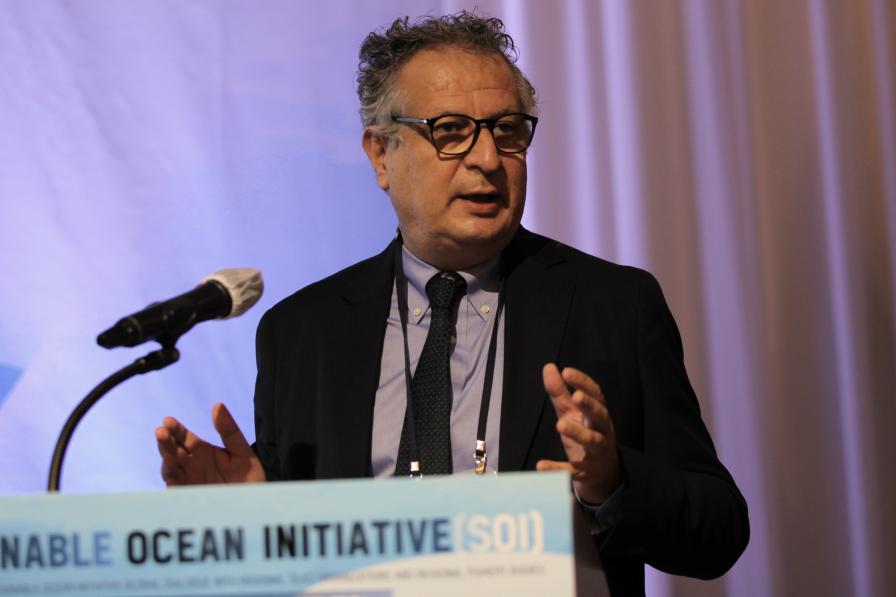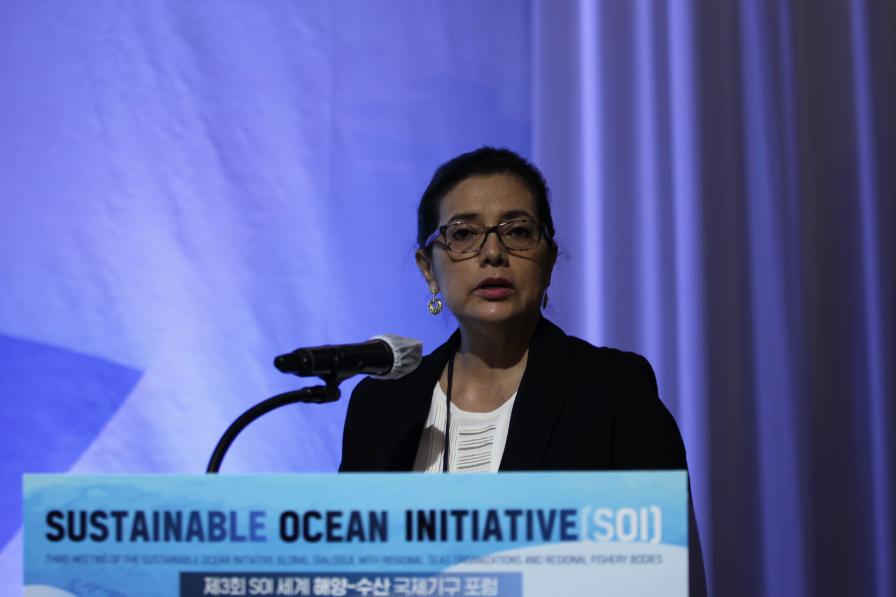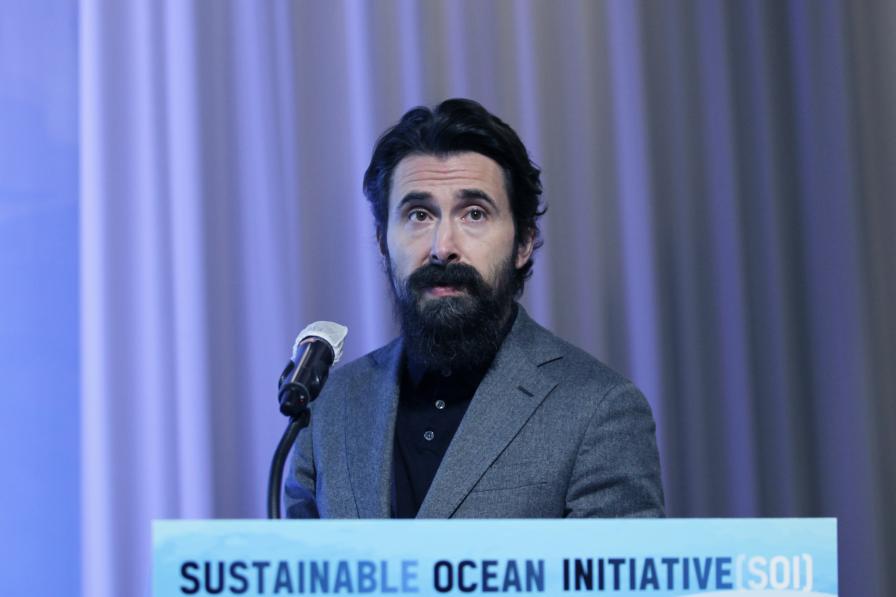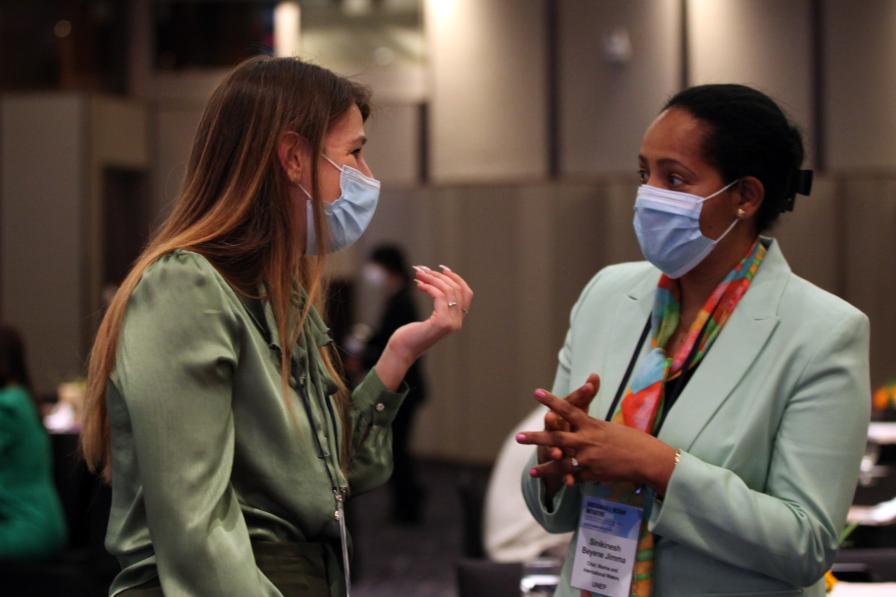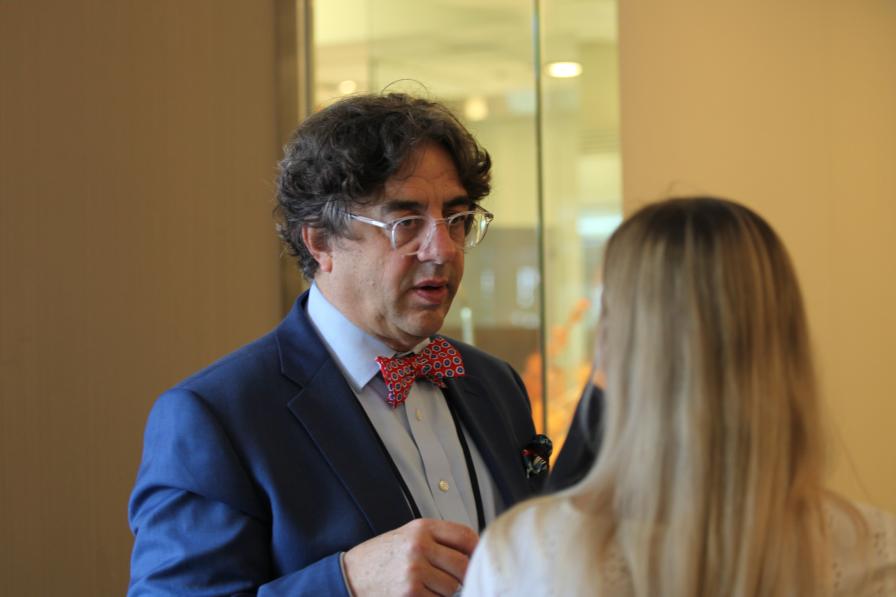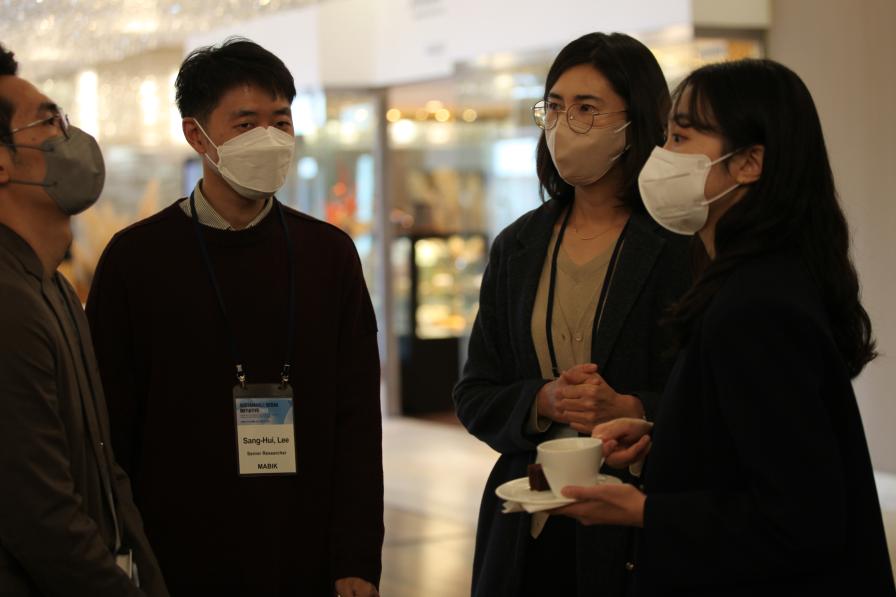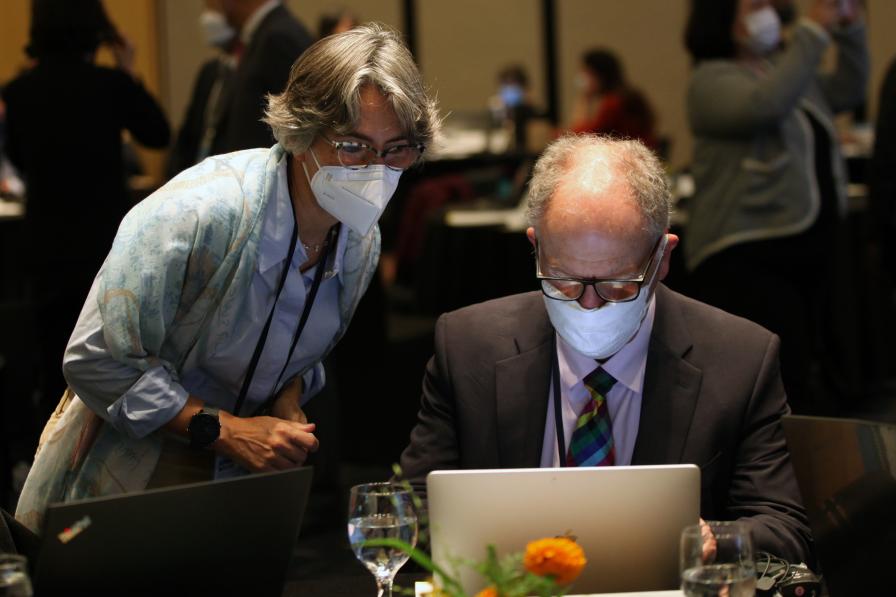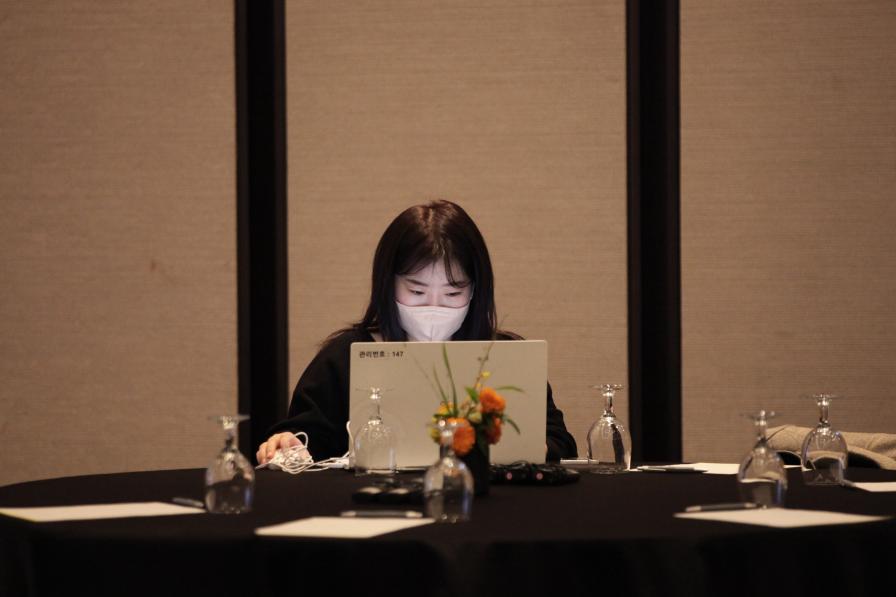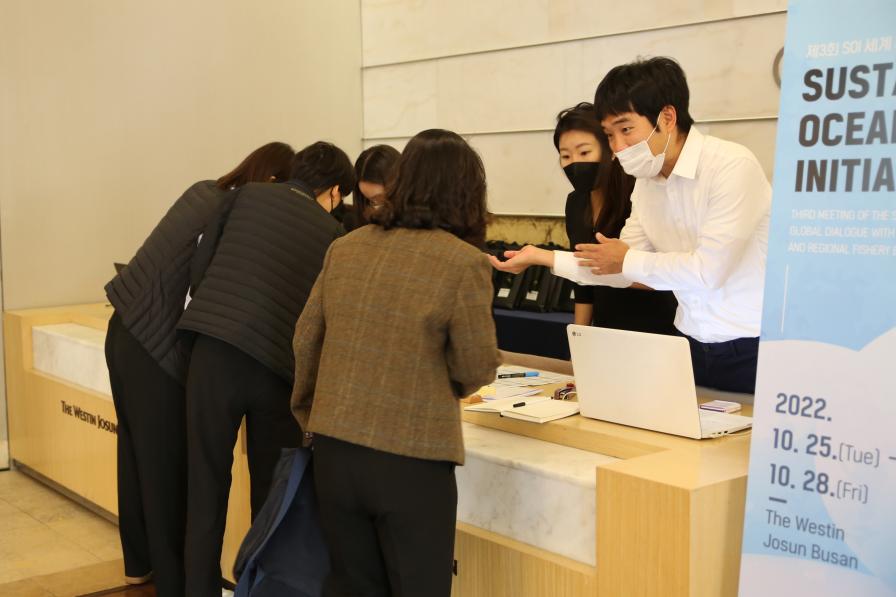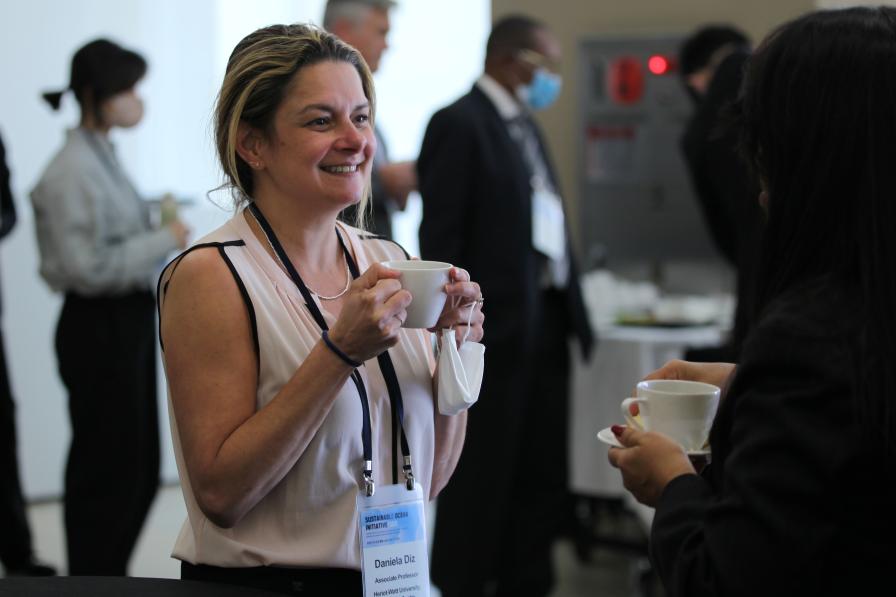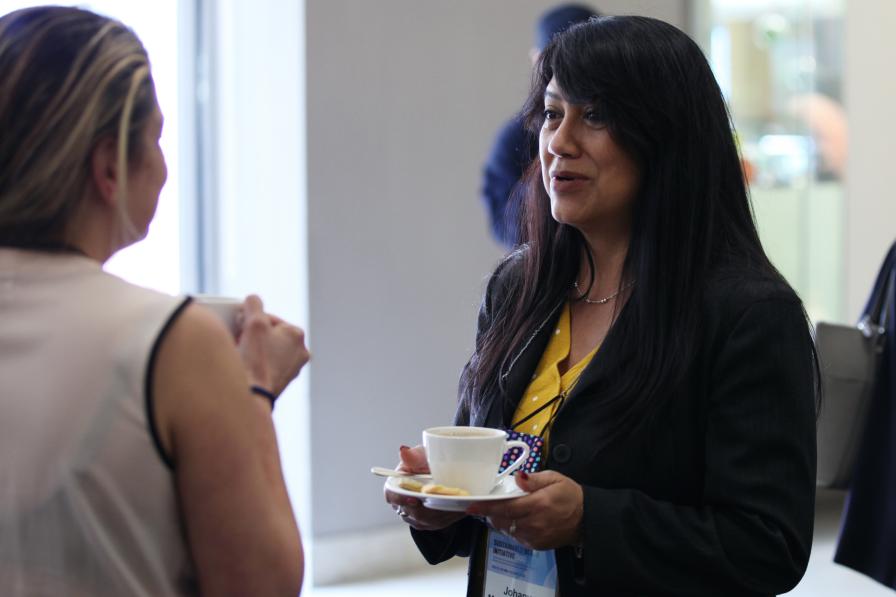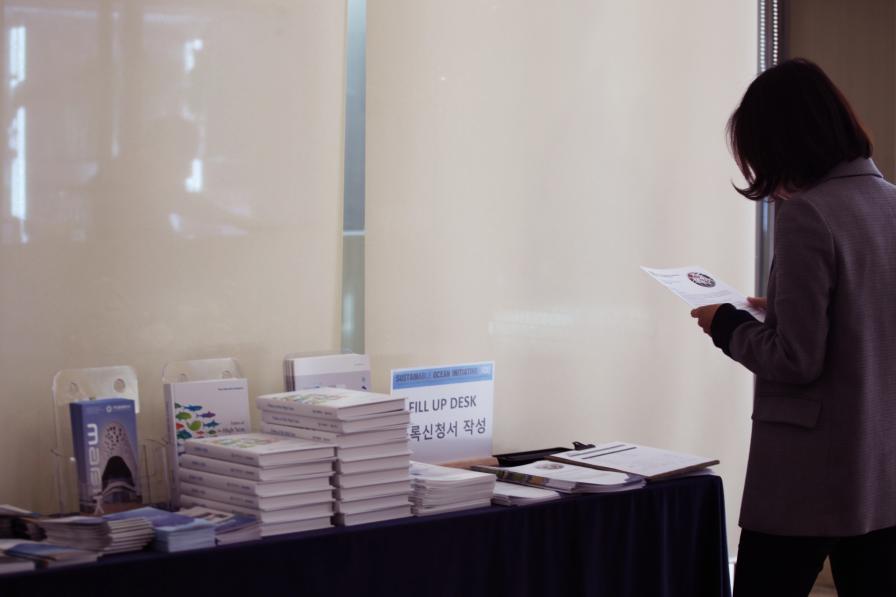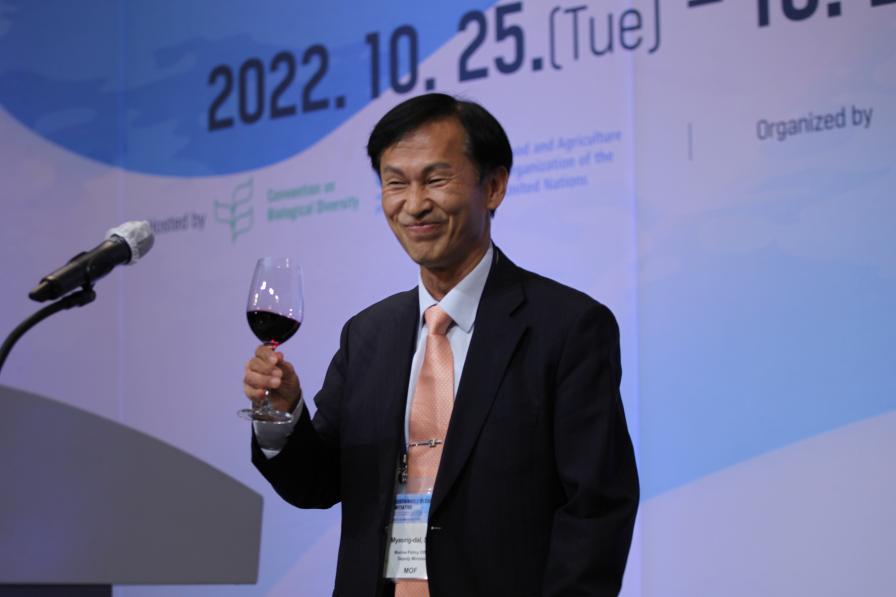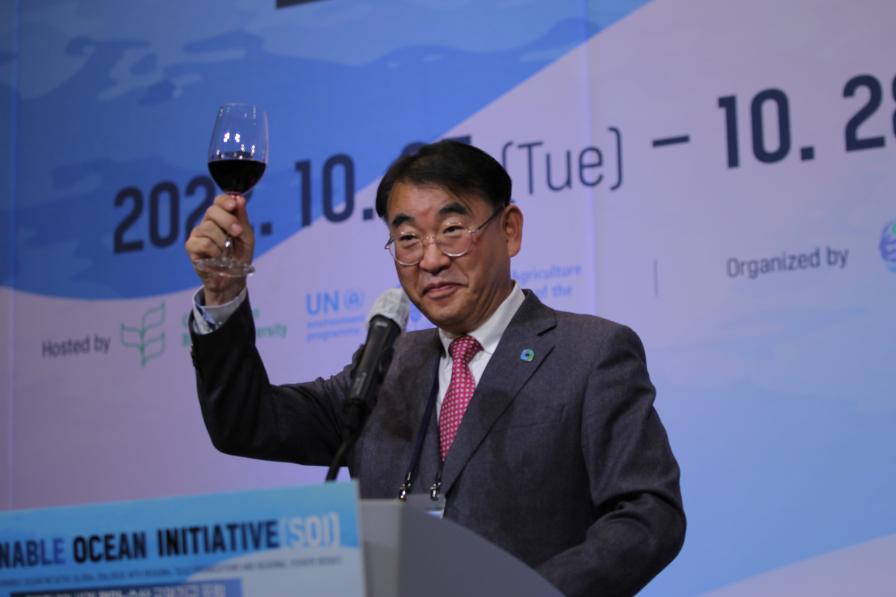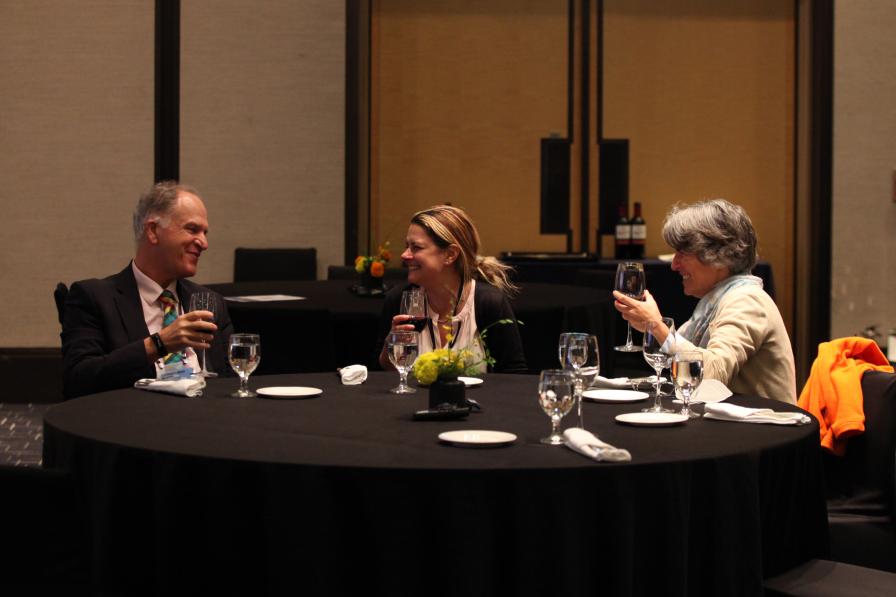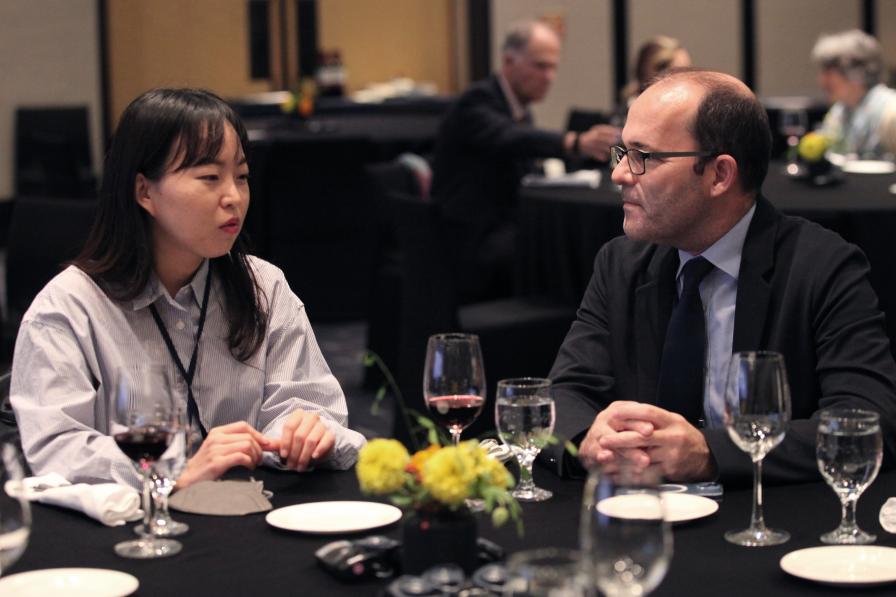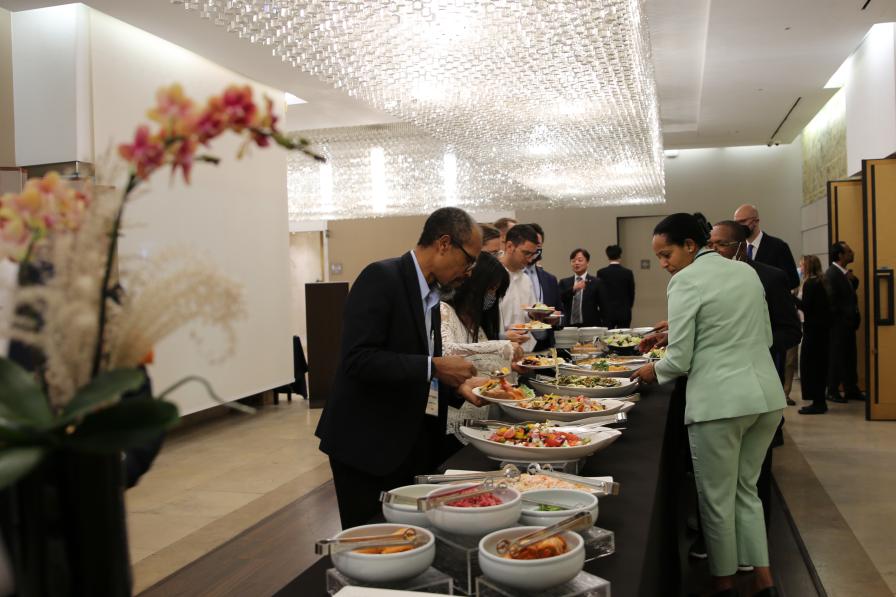At a time of heightened global attention to ocean governance, with discussions progressing on international agreements on marine areas beyond national jurisdictions (ABNJ) and on plastic pollution, participants gathered in Busan, Republic of Korea, at the third Sustainable Oceans Initiative (SOI) Global Dialogue. The focus of the meeting was to build partnerships and enhance the capacity of regional seas organizations (RSOs) and regional fishery bodies (RFBs) to conserve and sustainably use marine and coastal biodiversity. All representatives were unanimous in emphasizing that regional governance can help reach global goals for the Ocean while supporting the estimated 600 million people who depend on fisheries and aquaculture in some way for their livelihoods.
Myeong-dal Song, Deputy Minister of Oceans and Fisheries of the Republic of Korea, opened the meeting, saying marine biodiversity is essential to economic and social prosperity but is endangered by overfishing and climate change, among others. In his opening remarks, Wan-hyun Choi, President, National Marine Biodiversity Institute of Korea (MABIK), called the Ocean a “treasure chest” of essential resources now facing severe risk of loss.
Other interventions during the opening session focused on how to embed a whole-of-society approach as envisaged by the post-2020 Global Biodiversity Framework being negotiated under the Convention on Biological Diversity (CBD), while calling for an improved understanding of how the Ocean is used by different stakeholders. The opening session was followed by an initial overview of the objectives and expected outcomes of the meeting, and remarks by representatives of the UN Environment Programme (UNEP) and the Food and Agriculture Organization of the UN (FAO) about the global impact that should ensue given the ambitions to evolve a "global oceans policy-scape." The International Seabed Authority (ISA) referred to the “green dilemmas” posed by proposals to mine the Ocean bed to meet the expected increase in mineral demand.
The afternoon comprised progress reports of activities undertaken since the second SOI Global Dialogue meeting. During the initial panel discussion, panelists reported from the different regions, providing updates on cross-sectoral cooperation at the regional scale, including on:
- the potential benefits of cross-sectoral collaboration on fisheries, environment, and biodiversity among regional organizations;
- how cross-sectoral collaboration at the regional scale enhanced efforts towards global goals, including in the areas of sustainable ecosystem-based management of fisheries and the impacts of fisheries on ecosystems, managing pressures interacting with the effects of climate change, controlling pollution, area-based management, and the protection of threatened species and habitats;
- how cross-sectoral cooperation and coordination have been tailored to the specific circumstances of each region; and
- practical experiences and lessons learned on interregional cooperation, which led to enhanced parallel activities or joint activities in other regions.
The afternoon concluded with another panel discussion. Dominic Pattinson, Executive Secretary, Convention for the Protection of the Marine Environment of the North-East Atlantic (OSPAR), noted that establishing trust takes time and effort for which face-to-face, continuous, and frank communication is required. UNEP and FAO wrapped up the final interventions, after which the Republic of Korea’s Ministry of Oceans and Fisheries hosted participants in a dinner reception.
All ENB photos are free to use with attribution. For the 3rd Meeting of the SOI Global Dialogue, please use: Photo by IISD/ENB | Anastasia Rodopoulou
To receive free coverage of global environmental events delivered to your inbox, subscribe to the ENB Update newsletter.
